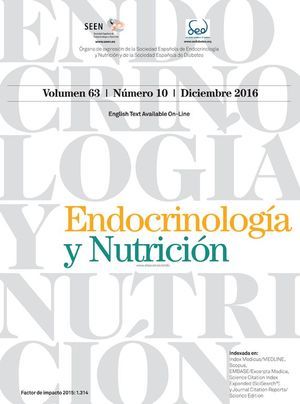El hígado graso no alcohólico (HGNA) es una entidad muy frecuente en el paciente con diabetes mellitus tipo 2 (DM2). La coexistencia de ambas patologías se asocia con mayor y más temprana mortalidad por complicaciones hepáticas y, sobre todo, por enfermedad cardiovascular. En el tratamiento del HGNA y la DM2, además de intentar un estricto control glucolipídico, se debe intervenir sobre los factores de riesgo para la progresión a estadios más avanzados y agresivos. Aún no existe un fármaco aprobado por agencias internacionales para el tratamiento del HGNA, pero hay estudios que han demostrado la utilidad de algunos de ellos, como la pioglitazona, la vitamina E y, recientemente, la liraglutida, entre otros. Esta revisión se centra en las medidas higiénico-dietéticas y los agentes farmacológicos disponibles hasta la fecha, en los cuales se ha puesto de manifiesto un potencial efecto positivo sobre la historia natural de la enfermedad.
Non-alcoholic fatty liver disease (NAFLD) is a frequent comorbidity of type 2 diabetes mellitus. This coexistence is associated with higher and earlier mortality due to hepatic complications, especially cardiovascular disease. The treatment of both diseases should not only aim for strict glucose and lipid control but also to diminish the risk factors for its progression to more advanced and aggressive stages. No drug has yet been approved by international agencies for the treatment of NAFLD. Agents with proven usefulness in NAFLD include pioglitazone, vitamin E and, recently, liraglutide, among other drugs. This review focuses on the lifestyle interventions and currently available pharmacological agents that have shown a potentially positive effect on the natural history of NAFLD.






